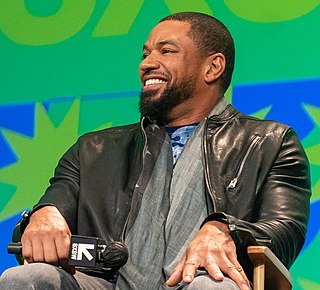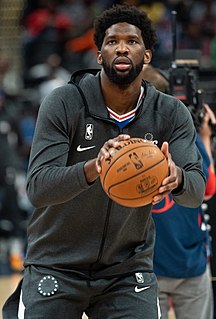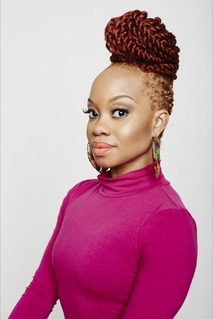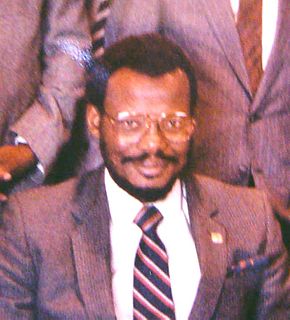A Quote by Laz Alonso
As Africans Americans we often think about the tragic stories associated with our lineage, but there are a lot of triumphs. Traveling helps you learn about other aspects of our history, like the story of Christ the Redeemer. It's empowering and inspiring.
Related Quotes
There's no doubt that when it comes to our treatment of Native Americans as well as other persons of color in this country, we've got some very sad and difficult things to account for. I personally would want to see our tragic history, or the tragic elements of our history, acknowledged. I consistently believe that when it comes to whether it's Native Americans or African-American issues or reparations, the most important thing for the U.S. government to do is not just offer words, but offer deeds.
I think a lot of times when people hear the word dance, they think 'oh, that's something that I can't do.' But dance really lives in our bodies and the thing that I've come to learn, embrace and lift up is that we have history in our bodies that's living and breathing. We have our own individual history but we also have our heritage. Each one of us has our movement language and it's about tapping into that and pulling that out. That's the thing that I try to encourage everybody because it's not about dance, it's about the movement and the gesture and how we honor it.
We really didn't devote a lot of time to investigating the scariest aspects of our flight. It was more challenging and productive to concentrate on the remedies, and leave things that couldn't be solved to happen without thinking about them. There is a morbid human curiosity associated with tragic death-producing events. Though naturally, this needs to be kept in perspective.
Many people don’t realize the extent to which stories influence our behavior and even shape our culture. Think about how Bible stories teach the fundamentals of religion and rules of conduct. Think of the fables and parables that molded your values. Think of how stories about your national, cultural or family history have shaped your attitudes about yourself and others.
Because crime stories reveal an aspect of our personality that everybody has, but which we normally keep very deeply hidden. We like to talk about the good sides of ourselves. We don't like to talk about our hatreds, our distrusts of one another, our secrets, but crime stories drag those things to the surface and consequently they fascinate people and always have throughout all history.
There's no other way to learn about it, except through documentaries. I encourage documentarians to continue telling stories about World War II. I think documentaries are the greatest way to educate an entire generation that doesn't often look back to learn anything about the history that provided a safe haven for so many of us today. Documentaries are the first line of education, and the second line of education is dramatization, such as The Pacific.
I was thinking about framing, and how so much of what we think about our lives and our personal histories revolves around how we frame it. The lens we see it through, or the way we tell our own stories. We mythologize ourselves. So I was thinking about Persephone's story, and how different it would be if you told it only from the perspective of Hades. Same story, but it would probably be unrecognizable. Demeter's would be about loss and devastation. Hades's would be about love.
It is natural that our minds replay old stories, because that is our own mechanism for trying to work out unresolved problems. Yet rerunning those stories will be a fruitless looping until we learn how to move from the story into our body. This is why therapy alone often doesn't bring full healing and awakening.




































